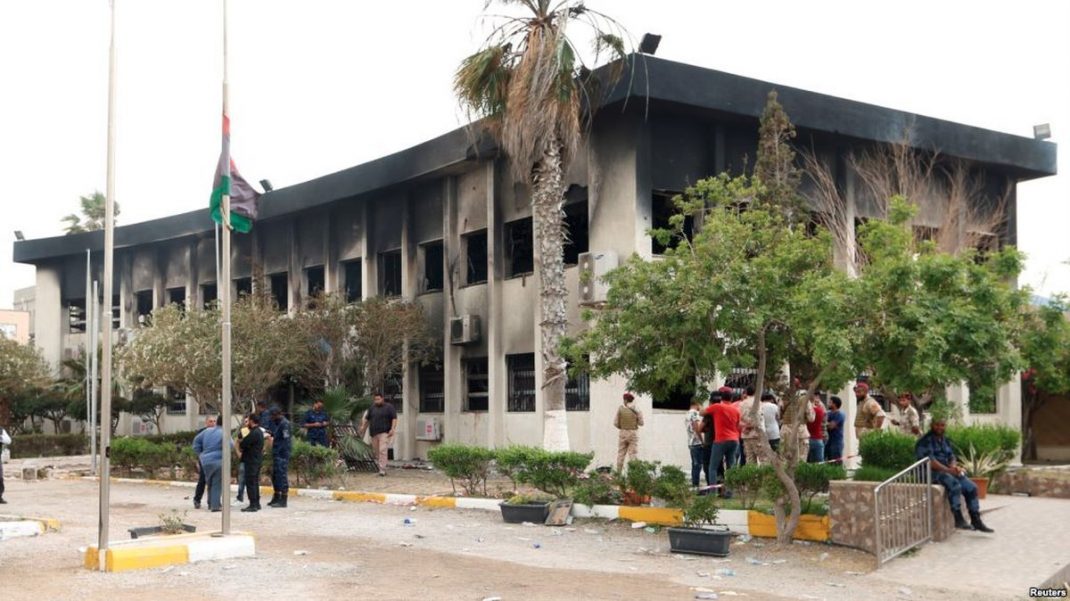By Edward Yeranian
Various Libyan factions are accusing each other of trying to postpone parliamentary and presidential elections, following the suicide-attack against the headquarters of the country’s electoral commission Wednesday in Tripoli.
The Islamic State group claimed responsibility for the bombing, while the military spokesman in the east of the country downplayed that claim.
The suicide bomber attack Wednesday against Libya’s electoral commission headquarters left a trail of death and destruction. Libyan TV showed the charred remains of the badly damaged building and reported more than a dozen people had been killed.
Arab media said the so-called Islamic State group claimed responsibility for the attack.
Colonel Ahmed al-Masmari, military spokesman for the self-styled Libyan National Army in the east of the country, was skeptical of the claim.
He says that there are “gangs” from the Muslim Brotherhood and al-Qaida that were behind this attack. He says the “Islamic State” group claimed responsibility, but they claim they are behind everything. He says for the Libyan Army, the Muslim Brotherhood, IS, and al-Qaida are the same thing.
Masmari said the Muslim Brotherhood is attempting to postpone presidential and parliamentary elections in Libya by tying them to a separate vote on revising the constitution.
University of Paris Political Science Professor Khattar Abou Diab also is skeptical about the alleged “Islamic State” claim of responsibility for the bombing.
He says these terrorists do exist, and they have their own independent networks, but they frequently are manipulated by various countries. He notes that at one point it appeared that “IS” was infiltrated by former Gadhafi elements, and now it looks like certain countries are manipulating them. One needs to look at who profits from the crime, he insists.
Arab League head Ahmed Aboul Gheit said earlier this week certain countries have stepped up funding to various local militia groups.
U.N. Libya envoy Ghassan Salame said the internal and external tangents of the Libyan crisis need to be tackled.
He says the United Nations is working to resolve the internal conflict, but efforts must be made on the international and diplomatic front to reduce negative meddling and increase positive intervention.
Washington-based Middle East analyst Theodore Karasik tells VOA recent reports that eastern Libyan military commander General Khalifa Hafter was on his deathbed demonstrate the extent of outside propaganda by certain countries.
“What Hafter’s trip to Paris exposed was how aggressive the Qatari-Turkish-Pro Muslim Brotherhood info-war campaign is. This campaign that focused on Hafter’s health and his imminent [death] was illustrative of how aggressive Ankara and Doha still are in Libya,” he said.
Analyst Christopher Davidson, who teaches at Durham University in Britain, tells VOA he thinks neither General Hafter nor the Muslim Brotherhood are likely to want to see “potentially unifying national elections take place” in Libya. Both sides, he argues, “need more time to gain more territory and strengthen their hand at the future national negotiating table.”
***
Top Photo: The electoral commission building after a suicide attack in Tripoli, Libya, May 2, 2018.
___________




